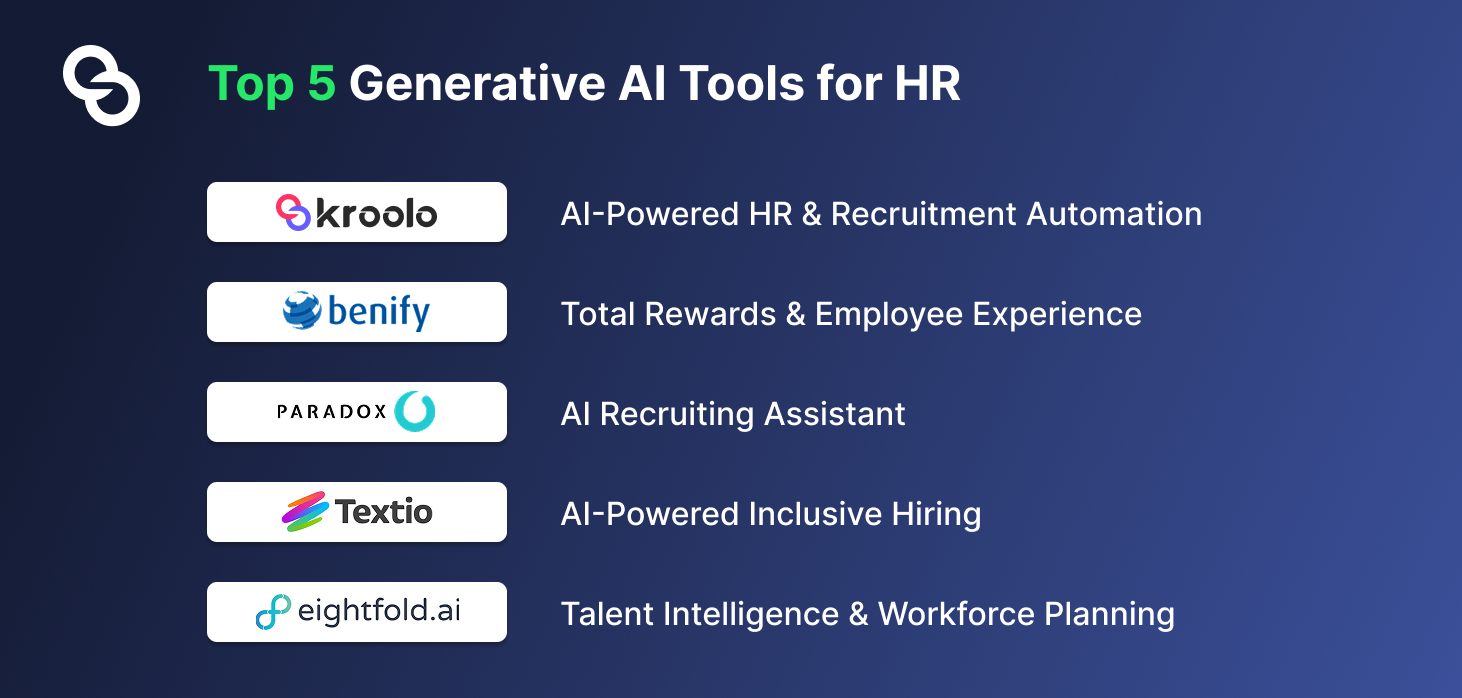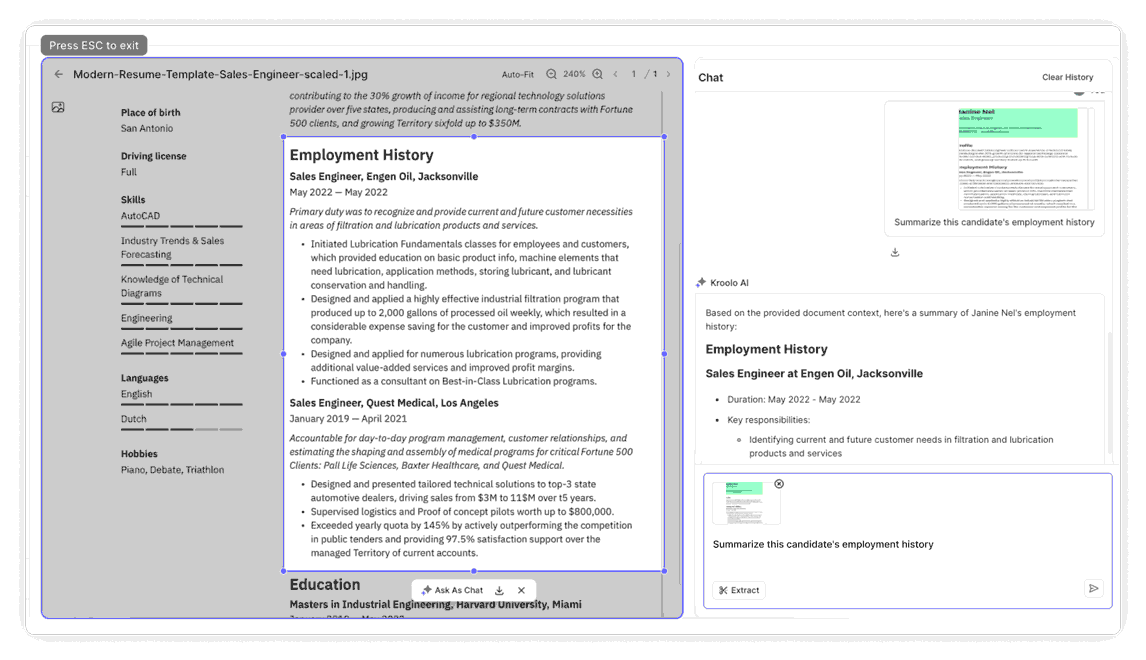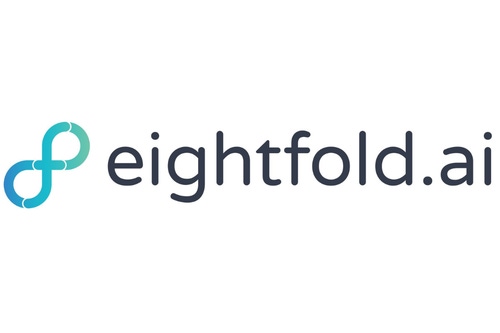


Apr 03, 2025
-
By Clive
Generative AI in HR is transforming the way companies hire and manage employees. With job applications increasing, HR teams need faster and smarter ways to handle recruitment. AI helps by automating resume screening, improving hiring decisions, and personalizing employee experiences.
The numbers speak for themselves—67% of HR professionals say AI makes hiring more efficient, and 80% of HR leaders believe it will soon be essential in managing employees. The AI in HR market is growing fast and is expected to reach $17.61 billion by 2027.
But AI isn’t just about automation. It helps HR teams make better decisions, from predicting hiring needs to creating smarter training programs.
In this article, we’ll explore how generative AI is shaping HR and share practical tips for using AI effectively. Whether it’s hiring faster or keeping employees engaged, AI is already making a big impact!
Generative AI in HR refers to the use of artificial intelligence models that can generate text, automate tasks, and enhance decision-making in human resource processes.
It leverages advanced machine learning techniques, such as natural language processing (NLP) and deep learning, to streamline recruitment, employee engagement, training, and workforce planning.
By automating repetitive tasks and providing data-driven insights, generative AI helps HR professionals improve efficiency, personalize employee experiences, and make more informed decisions.
Generative AI is transforming HR by automating routine tasks, improving decision-making, and enhancing employee experiences. From streamlining recruitment with AI-driven resume screening to automating administrative work like payroll processing and employee queries, GenAI significantly boosts efficiency.
One key impact is time savings—employees will spend up to 60 to 70 percent less time on automated, administrative work with the help of generative AI. This allows HR teams to focus on strategic initiatives such as talent development, employee engagement, and workforce planning, ultimately driving organizational growth.

Generative AI is reshaping the way human resources (HR) teams operate, offering automation and intelligence to improve efficiency, accuracy, and decision-making. From candidate screening to employee performance management, AI-driven solutions enable HR professionals to focus on high-value tasks while eliminating tedious manual processes.
As AI adoption accelerates, companies leveraging these tools will gain a competitive advantage in hiring, training, and workforce management. Below, we explore 15 key use cases of Generative AI in HR and how they are shaping the future of talent management.

Recruiters often spend countless hours reviewing resumes and comparing qualifications. Generative AI simplifies this process by automatically analyzing resumes, extracting key skills, and matching candidates to job descriptions.
By using natural language processing (NLP), AI can:
This reduces hiring bias, speeds up the recruitment process, and ensures that organizations select the best talent efficiently.
With Kroolo, you can leverage chat with anything to have AI powered candidate screening. Easily upload resumes, job descriptions, or candidate databases and chat with them using AI. Instantly extract key insights, compare qualifications, and shortlist top candidates—all in one place.
Managing multiple candidates across different hiring stages can be overwhelming. AI-driven applicant tracking systems (ATS) ensure that no candidate falls through the cracks by:
With Kroolo tasks, you can track every candidate’s progress seamlessly. Create tasks with AI, set assigned dates, and maintain an organized recruitment pipeline. Ensure no candidate is overlooked and streamline your hiring process with automated tracking.
HR teams handle a variety of repetitive administrative tasks, such as updating databases, scheduling interviews, and sending offer letters. AI-powered automation eliminates these manual processes by:
This allows HR teams to focus on strategic initiatives rather than spending time on routine tasks.

Crafting compelling job descriptions, candidate emails, and interview questions can be time-consuming. Generative AI can instantly generate:
By maintaining consistency in recruitment messaging, AI ensures that employer branding remains strong while improving the candidate experience.
Generate job descriptions, candidate emails, interview questions, and reports effortlessly with AI agents in Kroolo. Automate recruitment communication, craft engaging employer branding content, and streamline HR documentation—saving time while ensuring consistency and accuracy.
Managing recruitment, onboarding, and employee records in a centralized system improves efficiency. AI-powered HR workspaces provide:
By integrating AI into workspace management, HR teams can streamline collaboration and reduce administrative overhead.
A structured hiring process ensures that no steps are missed. AI-driven checklists help HR teams:
This structured approach makes hiring more efficient and minimizes the risk of inconsistencies.

A common challenge in HR is ensuring that key prerequisites—such as background checks and approvals—are completed before proceeding to the next hiring stage. AI-powered workflows:
This prevents delays and ensures that each hiring step is completed in a timely manner.
In Kroolo, keep your recruitment process structured by setting task dependencies. Use "Waiting On" for background checks or approvals that must be completed first, and "Blocking" to ensure interviews or onboarding don’t proceed prematurely.
Managing payroll and tracking employee work hours can be complex. AI simplifies payroll by:
With Kroolo's Time-tracking functionality, you can effectively monitor employee productivity, optimize attendance and work-hour management, and gather actionable data for performance assessments.
This facilitates resource allocation in project management and ensures efficient capacity planning to mitigate risks of burnout or underutilization.
Personalized learning paths help employees develop their skills effectively. AI-powered training solutions:
AI-driven learning enhances professional growth and ensures employees stay competitive in their careers.
Generative AI in HR operations is revolutionizing performance management by providing real-time feedback and identifying key areas for operational improvement.
By leveraging AI-driven insights, HR teams can continuously assess employee performance, detect inefficiencies, and implement strategic enhancements to optimize workflows.
AI analyzes performance metrics to pinpoint bottlenecks and suggest process optimizations, leading to increased productivity and smoother operations.
With automated, data-driven feedback, employees receive continuous guidance, fostering a culture of ongoing development and efficiency in the workplace.
A well-structured onboarding process sets the foundation for employee success. Generative AI in HR operations enhances this experience by automating paperwork, compliance documentation, and administrative tasks.
AI-powered onboarding platforms guide new hires through personalized training schedules, ensuring they quickly adapt to company culture and workflows.
Additionally, AI-generated responses provide instant answers to common onboarding queries, reducing dependency on HR teams while offering a smooth transition for employees.
Generative AI is revolutionizing job transitions by matching employees with suitable roles based on their skills, preferences, and career aspirations. AI-driven tools analyse workforce data to recommend internal mobility opportunities, helping companies retain talent and optimize workforce planning.
Furthermore, AI simplifies HR administration by automating routine processes such as document processing, payroll management, and leave approvals.
This not only boosts operational efficiency but also allows HR teams to focus on strategic initiatives, ultimately improving the overall employee experience.
Strategic workforce planning is essential for ensuring a company has the right talent in place to meet its goals.
Generative AI in HR operations simplifies this process by analyzing historical data, forecasting hiring needs, and identifying skill gaps. Traditionally, HR teams conduct skills audits periodically, often as a time-consuming annual task. With AI, this becomes an ongoing, real-time process.
AI-powered human capital management tools compare current employee skills with job requirements, highlighting areas where additional training or new hires may be needed.
Organizations can also use AI to generate detailed insights on workforce trends, such as retention rates, performance metrics, and hiring needs for specific departments.
Managing HR policies and ensuring regulatory compliance can be complex and time-intensive. Generative AI helps streamline this process by automatically reviewing workplace policies, monitoring regulatory updates, and summarizing important changes for HR teams.
AI tools can flag new labor laws, compliance requirements, or workplace safety regulations, allowing HR professionals to stay proactive rather than reactive.
Additionally, AI simplifies administrative tasks such as time tracking, attendance management, and benefits processing.
By automating these functions, HR teams can reduce manual workload, minimize errors, and focus more on employee engagement and strategic planning. With AI-powered assistance, organizations can maintain a well-structured, compliant, and efficient HR ecosystem.
Kroolo simplifies goal setting and tracking for HR teams with AI-driven goal creation, making it easy to define clear objectives in seconds. HR can edit, archive, and update key results, ensuring goals stay relevant and aligned with company priorities.
Teams can create sub-goals, share updates, and collaborate seamlessly by inviting members to contribute. With real-time tracking and structured goal management, Kroolo helps HR drive productivity, maintain focus, and foster continuous improvement across the organization.

Let’s explore these top 5 Generative tools for HR to automate hiring, onboarding, employee engagement and experience using Gen AI-:

Kroolo simplifies hiring with AI-driven automation, enabling HR professionals to streamline recruitment, candidate tracking, and workforce management. From AI-powered screening to smart task management, Kroolo ensures a seamless hiring experience.
Features
 via Benify
via Benify
Benify’s AI assistant, Beni, provides 24/7 personalized employee support by answering HR-related queries, resolving issues, and integrating with a company’s knowledge base. This ensures employees receive accurate, instant, and customized assistance, reducing HR workload.
Key Features

via Paradox
Paradox’s AI assistant Olivia, automates time-consuming hiring tasks like candidate screening, interview scheduling, and answering FAQs. It improves efficiency, speeds up hiring, and enhances the candidate experience with real-time engagement.
Key Features
 via Textio
via Textio
Textio uses AI-driven language analysis to enhance job descriptions, performance reviews, and company communications. It helps HR teams remove bias from hiring materials and attract a diverse, high-quality talent pool.
Key Features

via Eightfold AI
Eightfold AI uses deep learning to analyze employee skills, predict career paths, and suggest personalized development opportunities. It helps HR teams optimize workforce planning and improve retention.
Key Features
Generative AI is reshaping the future of HR by automating administrative tasks, improving decision-making, and enhancing employee experiences. From AI-driven candidate screening and personalized onboarding to performance analysis and career development, GenAI enables HR teams to operate more strategically.
According to a Bain & Company report, implementing AI in HR can reduce labor time by 15% to 20%, with HR operations teams experiencing time savings of up to 35% (Bain & Company).
Looking ahead, GenAI will continue to revolutionize HR by enabling predictive workforce planning, sentiment analysis for employee well-being, and hyper-personalized learning pathways.
HR leaders who embrace AI-driven transformation will be better equipped to address skills gaps, improve retention, and create a more agile, data-driven workforce.
Conclusion
The future of HR is undeniably AI-driven, and Generative AI for HR professionals is set to revolutionize how teams hire, manage talent, and make strategic decisions.
From automating repetitive tasks to enhancing candidate screening and employee engagement, AI is not just a trend—it’s the future.
Ready to transform your HR processes with AI?
Try Kroolo to streamline recruitment, automate workflows, and enhance decision-making—all in one AI-powered platform. Sign up today!
Tags
AI